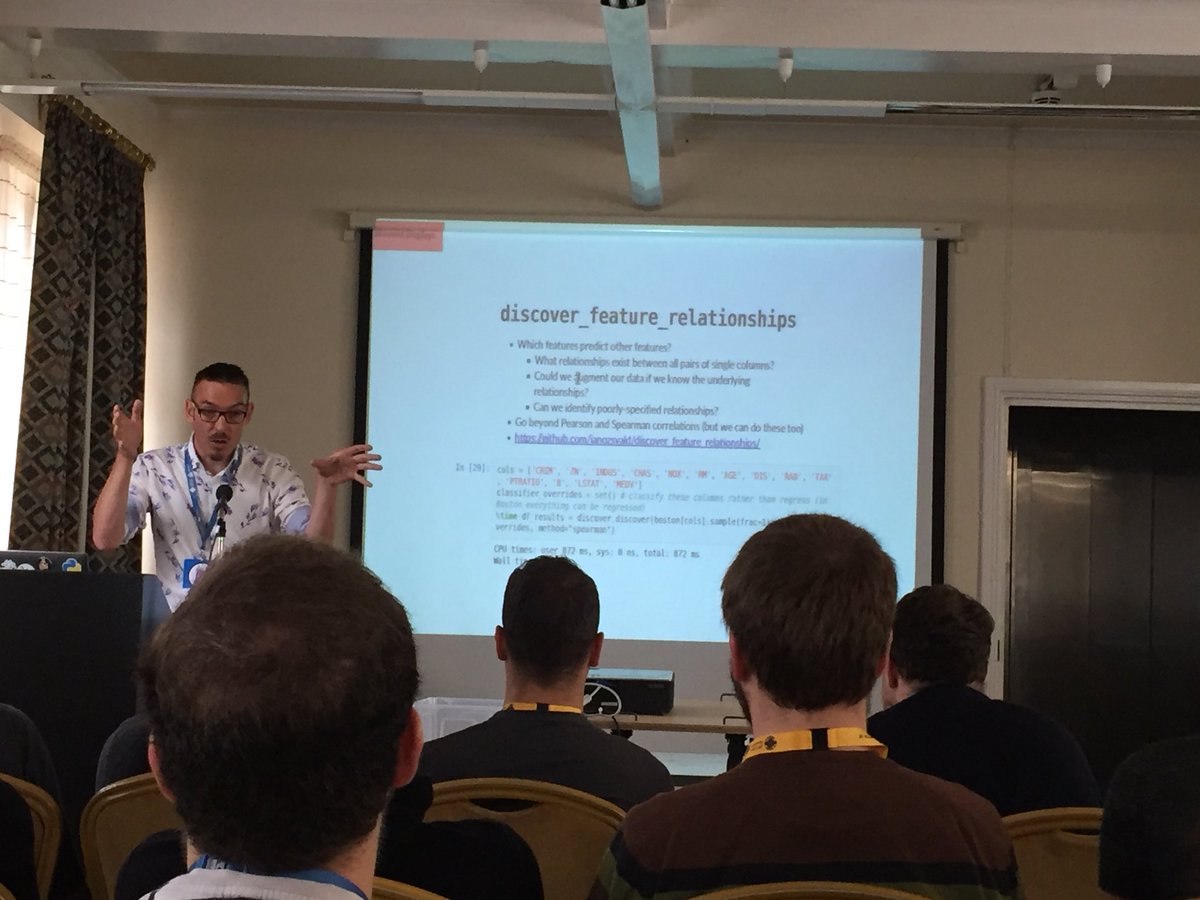Last weekend we had another fine PyConUK (2018) conference. Each year the conference grows, the Django Girls group had 70 or so women learning Django (and, often, Python for the first time). The kids hack day was a great success. The Pythonic-hardware demo session was fun.
Each year PyConUK encourages first-time speakers so we had the diverse-as-usual set of speakers and topics. If you’ve never attended – I’d encourage you to think on at least attending next year, and if you’re game do think about submitting a talk (even a 5 minute lightning talk as an easy first contribution).
This year I chaired two sets of sessions on the PyData track and spoke on the Diagramatic Diagnosis of Data. Slides are linked here (note that the PDF lacks some images and formatting), these are the PDF export from a live Jupyter Notebook presentation (here’s the repo).

I spoke on:
-
Styling Pandas
-
Initial exploratory data analysis using Google’s Facets and pandas_profiling
-
Data story-telling using matplotlib and Seaborn
-
Data stories by Bertil
-
Data relationship discovery using my discover_feature_relationships to help prioritise which columns to investigate
Here’s the talk:
Pete Inglesby also ran a rather fun competition for us to write a Python based limited-opcode Connect 4 solver. You wrote some code, uploaded it and watched it battle the other entrants. For a little while I held 2nd place but I dropped by the finals. Here’s Pete’s botany code and here is Rob’s winning set of solutions. Here’s the diagnostic session after the competition (I’d gone home a day before). A few lessons learned:
-
Analyse the bot failures against any default bots
-
Play the bot by hand to see how kind of mistakes it makes
-
Submitting many entries yields more information about placing than running local simulations (just as with Kaggle)
-
Don’t trust the bot titles (“minimax” and others didn’t actually use that strategy)
-
Don’t go complex early – check the simple ways you can lose and avoid these mistakes (I tried doing full-board scoring – that eats all of your scant opcodes in no time at all)
-
Check for traps which will play out against you and block where possible
-
A pre-calculated 8-ply deep solution, uploaded as a compressed data structure in the source file, is pretty sweet (this came 4th with no other strategies)
If you’re roughly in the area of Cardiff you might want to look at the PyDataCardiff and PyDataBristol meetups. They’d be great places for you to meet local community members and, perhaps, to practice giving a talk that you might later submit to PyConUK next year. If you’re in London then you’re very welcome to attend our PyDataLondon or maybe you’ll want to look at the London Python meetup.